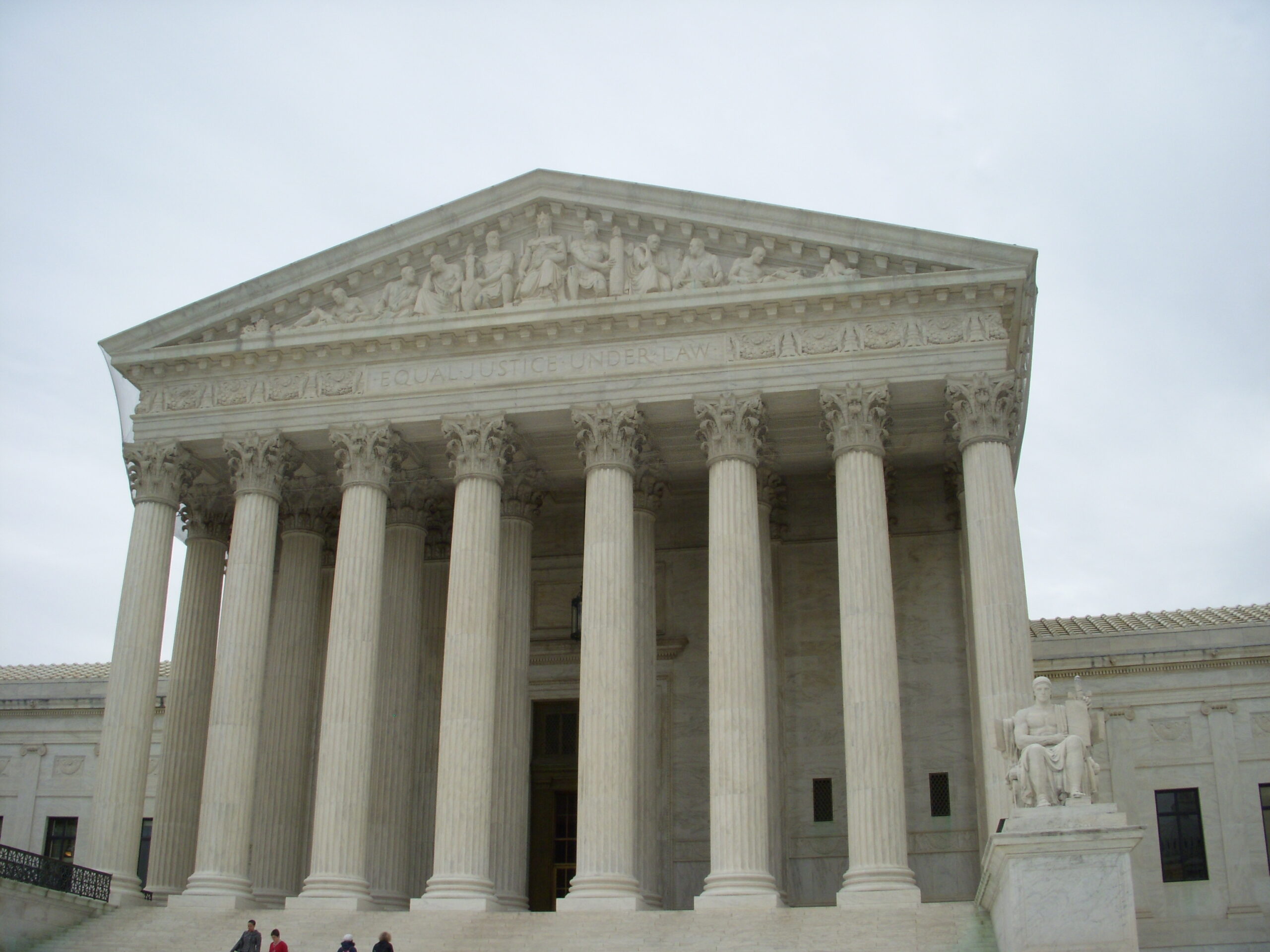Constitution
Will SCOTUS Give States the Power To Kick Trump Off the Ballot?
The Supreme Court will want to craft a unanimous consensus in the Colorado Trump ballot access case, and seems to be skeptical.

The Supreme Court agreed to take on the monumental case Trump v. Anderson – a case that will determine whether or not a state can disqualify Donald Trump from appearing on its ballot due to his actions relating to Jan. 6, 2021. This stems from the Colorado Supreme Court’s decision to disqualify Trump from the state’s primary ballot for violating the “insurrection clause” of the 14th Amendment.
There are three likely outcomes for the case – all of which would be controversial, but for different reasons. It is conceivable we could see a unanimous ruling in favor or in opposition to keeping Trump off the ballot. The quest for unanimity would reflect the court’s desire to maintain legitimacy in the eyes of a skeptical citizenry. A worst case scenario could also result in a partisan split decision from the court.
Some clues to how the court may rule can be found in recent cases relating to election law – particularly in Chiafalo v. Washington (2020). In that case, the court unanimously ruled that states could sanction presidential electors by removing them from their positions or by punishing them through fines. At issue was whether presidential electors were free agents or if states could compel electors to vote as expected.
In Chiafalo, the court took a practical, political, and unanimous approach – seeking to instill greater certainty to the presidential selection process. Given the originalist jurisprudence of many of the more conservative members of the court, the Chiafalo decision was somewhat surprising given the original intent of the Constitution’s framers for electors.
In Federalist 68, Alexander Hamilton stated that the selection of the president should be left to “men most capable of analyzing the qualities adapted to the station [and those] most likely to possess the information and discernment requisite to such complicated investigations.”
Yet, what Hamilton presaged is not what happened due to the emergence of the two-party system and the rise of presidential tickets. Almost immediately, electors were chosen not for their discernment, but for their obedience. While the expectation of electors changed, the Constitution did not.
It is in this context that the court gave states the authority to compel electors to vote as anticipated. To my reading, the court leaned into the evolution of the position of presidential elector more so than the original intent of the position.
Notably, Justice Thomas wrote a concurring opinion (joined by Justice Gorsuch) where he relied on the 10th Amendment’s principle that “the powers not delegated to the United States by the Constitution, nor prohibited by it to the States, are reserved to the States respectively, or to the people.” This sentiment was also relied upon among Justices Thomas, Alito, and Gorsuch in their dissent in Moore v. Harper (6-3) which would have given state legislatures near absolute control over their elections. Notably, as an appeals court judge, Gorsuch affirmed Colorado’s authority to disqualify a candidate from the ballot that was not a natural-born citizen.
One might think these bread crumbs would convey an inclination among originalist justices to give states great discretion in interpreting the Constitution, suggesting a real possibility that the court could allow the Colorado Supreme Court’s ruling to stand. Doing so would open the floodgates to other states following suit, which would undoubtedly add to the already extraordinary circumstances surrounding the 2024 election. Multiple justices appeared to acknowledge this – with Justices Alito and Kagan questioning whether doing so would motivate other states to ban other candidates from their ballots in retaliation.
A closer look at the Chiafalo decision might also suggest that the court could take a more pragmatic approach by rejecting the Colorado Supreme Court’s decision to bar Trump in an effort to avoid further claims of a politicized court. That too, would come with great pressure for a unanimous ruling. Such an outcome would rely on arguments over the 14th Amendment’s “insurrection clause,” limiting arguments over states’ rights.
Indeed, many questions focused on the original intent of the 14th Amendment, with liberal and conservative justices in seeming agreement that it was intended to limit the power of states in the wake of the Civil War. Chief Justice Roberts flatly stated that “the 14th Amendment was adopted to constrain states’ rights and empower the federal government.” Justice Kagan echoed this sentiment in her questions.
Taken together, the questions and remarks of the justices during oral arguments revealed a great deal of skepticism in the Colorado Supreme Court’s ruling.
Given the highly volatile nature of Trump v. Anderson, it is my hope that a Bush v. Gore scenario is avoided and that the court can come to a decisive unanimous decision. In Bush v. Gore, the Supreme Court stopped the Florida recount by a 5-4 decision, which effectively sealed the 2000 election for George W. Bush. It is worth noting that future and current justices Brett Kavanaugh, Amy Coney Barrett, and Chief Justice John Roberts were all part of the Bush legal team, with Justice Thomas as the lone member from that case who remains on the bench.
The line of questions from the justices coupled with Chief Justice Roberts’ own desire to restore confidence in the court suggests a unanimous ruling to overturn the Colorado decision is likely. Although this is perhaps an optimal outcome under the circumstances, Americans will continue to be deeply divided throughout the 2024 election cycle.
This article was originally published by RealClearPolitics and made available via RealClearWire.
Robert Alexander, Ph.D., is a professor of political science at Bowling Green State University. He is the author of “Representation and the Electoral College,” published by Oxford University Press.
-

 Civilization3 days ago
Civilization3 days agoWhy Europe Shouldn’t Be Upset at Trump’s Venezuelan Actions
-

 Executive4 days ago
Executive4 days agoHow Relaxed COVID-Era Rules Fueled Minnesota’s Biggest Scam
-

 Christianity Today3 days ago
Christianity Today3 days agoSurprising Revival: Gen Z Men & Highly Educated Lead Return to Religion
-

 Civilization4 days ago
Civilization4 days agoThe End of Purple States and Competitive Districts
-

 Executive4 days ago
Executive4 days agoWaste of the Day: Can You Hear Me Now?
-

 Executive5 days ago
Executive5 days agoWaste of the Day: States Spent Welfare in “Crazy Ways”
-

 Civilization2 days ago
Civilization2 days agoDeporting Censorship: US Targets UK Government Ally Over Free Speech
-

 Executive2 days ago
Executive2 days agoWaste of the Day: Wire Fraud, Conflicts of Interest in Connecticut










